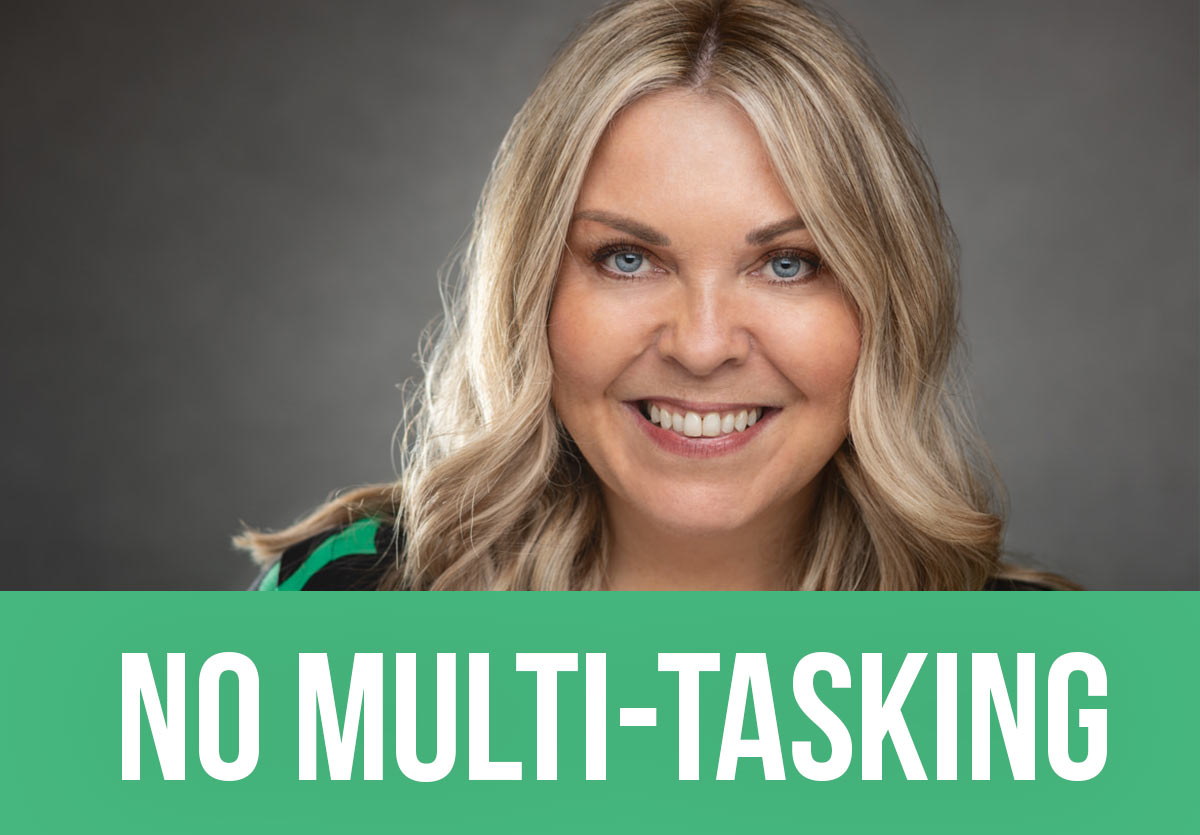As a master coach and the founder of Coach Training Academy Paseda360, I’ve been at the forefront of the coaching industry, guiding countless individuals towards personal and professional growth.
One of the critical aspects I emphasise in my coaching approach is the concept of monotasking over multitasking. I would encourage you to do the same.
In this article, I will delve into the reasons behind why humans cannot effectively multitask and explore the detrimental effects of attempting to do so during coaching sessions, both for the client and the coach.
I will also provide insights on how to handle clients who fall into the multitasking trap during their sessions.
The Illusion of Multitasking:
Contrary to popular belief, humans are not wired to multitask efficiently. Research consistently shows that the brain cannot effectively handle two or more tasks simultaneously.
Instead, it rapidly switches between tasks, leading to cognitive overload, decreased performance, and increased stress. Studies from Stanford University revealed that heavy multitaskers had lower cognitive control, poorer memory, and an increased likelihood of being distracted.
The Impact of Multitasking in Coaching Sessions:
When a client attends a coaching call and tries to read their Teams Chat or emails simultaneously, the consequences are manifold.
First and foremost, they are diverting their attention away from the coaching conversation, hindering their ability to actively listen, process information, and fully engage in the coaching process.
You can see this play out if you are an observant coach. Their trail of thought switches as they stop listening, and if they are speaking you’ll hear them slow down and then lose their thread completely.
When this happens the client may miss crucial insights and fail to grasp the depth of their coach’s questions, leading to a less effective coaching experience.
Additionally, multitasking during a coaching session can hinder the client’s emotional connection to the coaching process. Emotions play a significant role in coaching, as they help clients explore their thoughts and feelings more deeply.
Multitasking divides their focus, making it difficult to be present with their emotions and inhibiting the exploration of underlying issues.
The Impact of Multitasking on the Coach:
Just as multitasking proves detrimental to clients, it also affects the coach’s ability to provide effective coaching. When a coach attempts to multitask during a session, such as checking messages or emails, it creates a rift in their connection with the client. The coach’s focus and energy are divided, leading to a lack of presence and empathy in the coaching relationship.
Doing anything other than being present during coaching sessions can hinder a coach’s ability to actively listen and pick up on subtle cues from the client. Effective listening is crucial in coaching, as it enables the coach to ask insightful questions and facilitate meaningful self-discovery for the client.
Embracing Monotasking:
The solution lies in embracing monotasking, which means devoting your full attention to a single task at hand. Monotasking allows both the client and the coach to immerse themselves completely in the coaching conversation, fostering a deeper level of understanding and connection.
Research from the University of California, Irvine, indicates that it takes an average of 23 minutes and 15 seconds to return to a task after an interruption. By monotasking, clients and coaches can avoid such interruptions and maintain a continuous flow of thought and conversation.
Dealing with Clients who Multitask during Coaching Sessions:
As coaches, it is crucial to address the issue of multitasking with clients in a non-confrontational and empathetic manner. Encourage open communication about the importance of being fully present during coaching sessions.
Share the research and evidence that supports monotasking’s benefits, illustrating how it leads to more profound insights and better results.
Set clear expectations from the outset by discussing coaching session guidelines, including the request for clients to find a quiet and distraction-free environment for their coaching calls. It may also be helpful to remind clients of the coaching agreement and the commitment they made to their growth and development.
If a client continues to struggle with multitasking, gently remind them of the importance of being fully present in the coaching process. Offer practical techniques such as switching off notifications, and placing their mobile into a drawer.
Conclusion:
In conclusion, an emphasis on monotasking over multitasking in coaching sessions is rooted in scientific evidence and personal experience as a master coach.
Multitasking undermines the effectiveness of coaching conversations, leading to decreased performance and diminished emotional connection. Embracing monotasking allows both clients and coaches to fully engage in the coaching process, leading to deeper insights, better results, and a more meaningful coaching relationship. By addressing the issue with empathy and setting clear expectations, coaches can guide their clients towards embracing monotasking, unlocking their true potential for growth and transformation.







